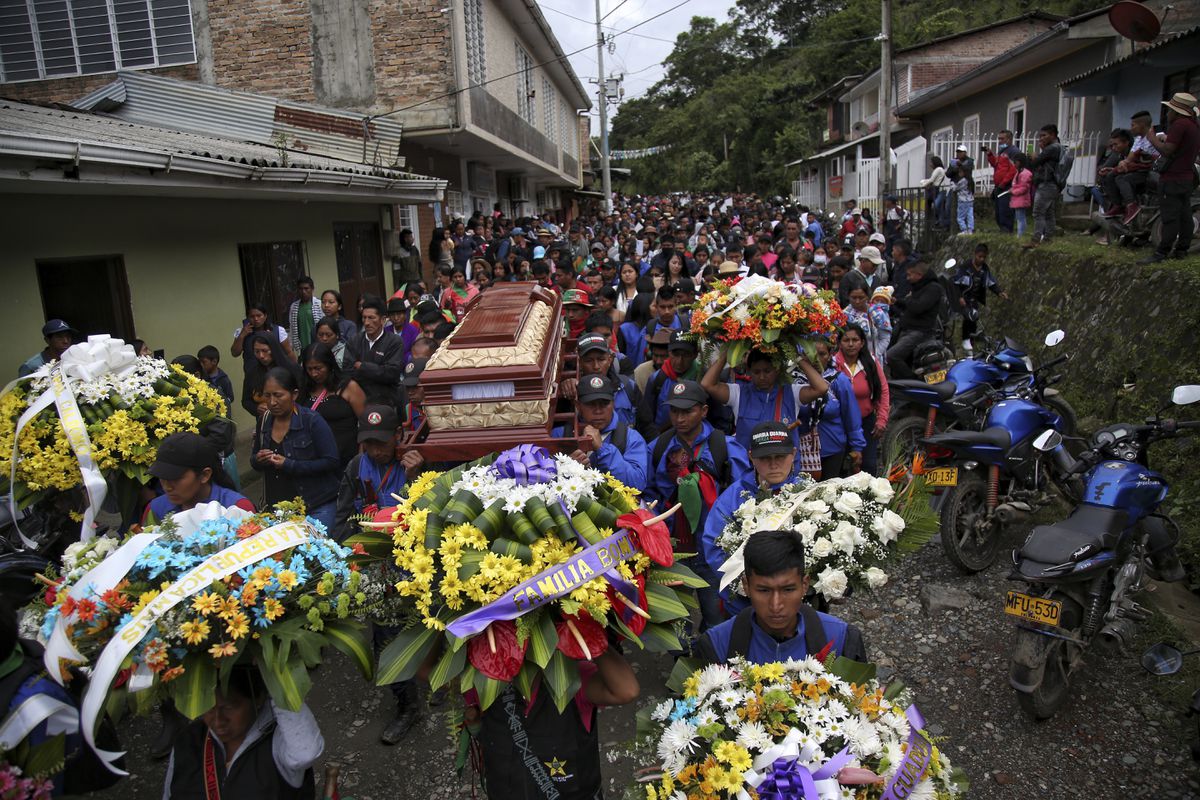- Click to share on Facebook (Opens in a new window)
- Click to share on Twitter (Opens in a new window)
- Click here to share on LinkedIn (Opens in a new window)
- Click to email a friend (Opens in a new window)
(CNN Spanish) - "We say we want peace, but not the peace of the kneeling."
The statement is from "Giovanny", an instructor of the First Front of the FARC dissidents, which operates in the department of Putumayo, in southern Colombia, bordering Ecuador. And it summarizes what many of the men and women who make up this armed faction think.
This is just one of the 23 groups that, according to the Peace and Reconciliation Foundation (Pairs), already operate in Colombia. They are guerrillas of the former Revolutionary Armed Forces of Colombia who did not surrender their weapons after the peace agreement that the Government of then President Juan Manuel Santos signed with the rebels, now grouped in the political party Revolutionary Alternative Force of the Common, also FARC.
In the special report Colombia, back to arms , made by CNN, several of the leaders of the First Front of the dissidents ignore the authority of their former bosses, whom they describe as traitors.
“Actually, those who negotiated that (peace) were the big bosses and it was really a mistake they made, because most of the guerrillas did not agree with that process. Very well we know that the government does not comply. He is practically a liar. They promise to give the farmers anything and never give them, ”said“ Jorge, ”a member of this dissent when interviewed by the newspaper team.
The situation is worrisome. According to Ariel Ávila, senior analyst and researcher at Pares, there are almost 2,500 men and women in these groups, which operate in 85 municipalities in Colombia. Of that total, some 1,800 are former guerrillas and the rest, between 600 and 700, new recruits.
“From here to January, Colombia will know if (…) they are a new guerrilla, or they are something that in Colombia are called banditry processes. That is to say, criminal structures that begin to decompose, ”says Ávila.
What does that result depend on? Apparently, the amount of controls that go to the dissent. “And at this point, knowing what happens with nine controls: 'Iván Márquez', 'Santrich', 'Aldinever', 'Romaña', 'El Paisa', will be decisive to take them either to banditry or to the new guerrilla,” said Ávila to CNN in Spanish.
In the Colombian journalistic special , back to arms , it is evident that the so-called dissent, at least in which we saw that it operates in the department of Putumayo, are recruiting and training minors, and they are preparing for what they call “ the continuity of the armed struggle against the State ”.
For the president of Colombia, Iván Duque, these groups, including the First Front of the dissidents, are nothing more than criminal gangs at the service of drug trafficking and without any political ideology.
In the words of Emilio Archila, senior advisor for Stabilization and Standardization: “They are not dissent. What they are is traitors. They betrayed the process, betrayed the victims, betrayed their word, they are an absolute minority, which is not echoing either in the bases or in the heads of the former FARC. Apart from that, they completely lack any ideology and no social claims. Then, they are part of the long list of drug trafficking groups that we, the United States and the international community have to fight against. ”
But the number of fighters in these groups is increasing. Especially because they operate in illegally cultivated areas, near the border with Ecuador and Venezuela. Today in Colombia, according to recent figures from the US Department of State, there are about 210,000 hectares cultivated with coca.
The dissent interprets in its own way the interaction it has with the drug trafficking business, at least according to the words of Ebimelec Eregua Torres, alias "Alonso 45", head of the First Front: "We can say: 'We are going to finish coca.' With coca or without coca we subsist. But let's look at the farmer's help. That's what the farmer lives on. That they say that where we are, coca is strengthening us ... No. The farmer takes a hectare and sows five. The Army is starting forward and they go back. And what has to do with us, that we are labeled as drug traffickers ... we are living on what we are living with is a tax. But we don't sow coca. We do not export it, nothing. Only since we have dominion in coking areas, we charge a tax. ”
All this happens at a time when former FARC leaders such as Luciano Marín Arango, "Iván Márquez", and Seuxis Paucías Hernández Solarte, "Jesús Santrich", along with other feared former bosses of that demobilized guerrilla, have announced that they take up arms for face the State again with the argument that the Government breaches the peace agreements in Havana.
But these leaders, including a former peace negotiator like “Iván Márquez”, will not find it easy to have unified command and control of the so-called dissent.
"Alonso 45" may have summed up in his interview with CNN the expectations: "And many of the fighters who have come to join us looked at the reality of us. They looked that they could live with us. This is not a refuge that will now come to take refuge here to wait, as many have said, 'I will wait how the Government fulfills us'. No. If you are going to come, come and with conditions. We have made it clear to them. The doors are open. Nor can we say: It is not that we and you are there. If someone wants and looks at the reason we have here, they are fine. ”
For critics of the peace agreement, such as legislator Edward Rodríguez, of the official Democratic Center party, the rise of dissent is only a sign of the ruin of the agreement that former president Santos achieved.
“The peace process of Juan Manuel Santos with the FARC has been a failure. That this has to be rethought. And that those who have been beneficiaries of that process with Juan Manuel Santos have to rethink even the agreement itself. And this is to generate a great national pact as we always wanted to do so that those people who today are preparing for a new war, who are frightening and extorting, because they know that legality will win them. And whoever pays it, ”said the legislator in dialogue with CNN.
The political party FARC, through its director Rodrigo Londoño "Timochenko", has totally rejected the announcement of Márquez and other former guerrilla ex-bosses to regain arms. "It is a shame," Londoño said on August 29. Several lawmakers from the FARC political party, such as Senator Julián Gallo, better known as "Carlos Antonio Lozada," have also publicly expressed their concern over the increase in dissidence in Colombia.
For many connoisseurs of the armed conflict, such as the independent journalist Jorge Enrique Botero, who has covered the confrontation between the State and the rebels for more than 30 years, there are many worrying signs about the future of the fragile peace in the country.
“We are going to witness in a very few months, or a year or two years, the same story we were living before the peace dialogues of Havana began. What causes me is a great sadness to register that Colombia seems doomed to have violence in its DNA as a central element of his life, ”says Botero, who was the producer and producer in the field of interviews and images with the dissidents of the First Front of the FARC.
For now, President Duque has given the order to fight these groups relentlessly. The Military Forces have dealt several blows to these structures that already threaten to destabilize the elections of governors, mayors, deputies and councilors, scheduled for October 27. Several candidates have been killed and others have received under threat, mainly in the areas in which the dissidents operate.
In the streets, citizens are worried about the possible upsurge of violence, much more when they thought they could turn the dark page of more than 50 years of armed conflict with the FARC. But now this threat reappears with new vigor, as we reflect in the special Colombia, back to arms .
Farc



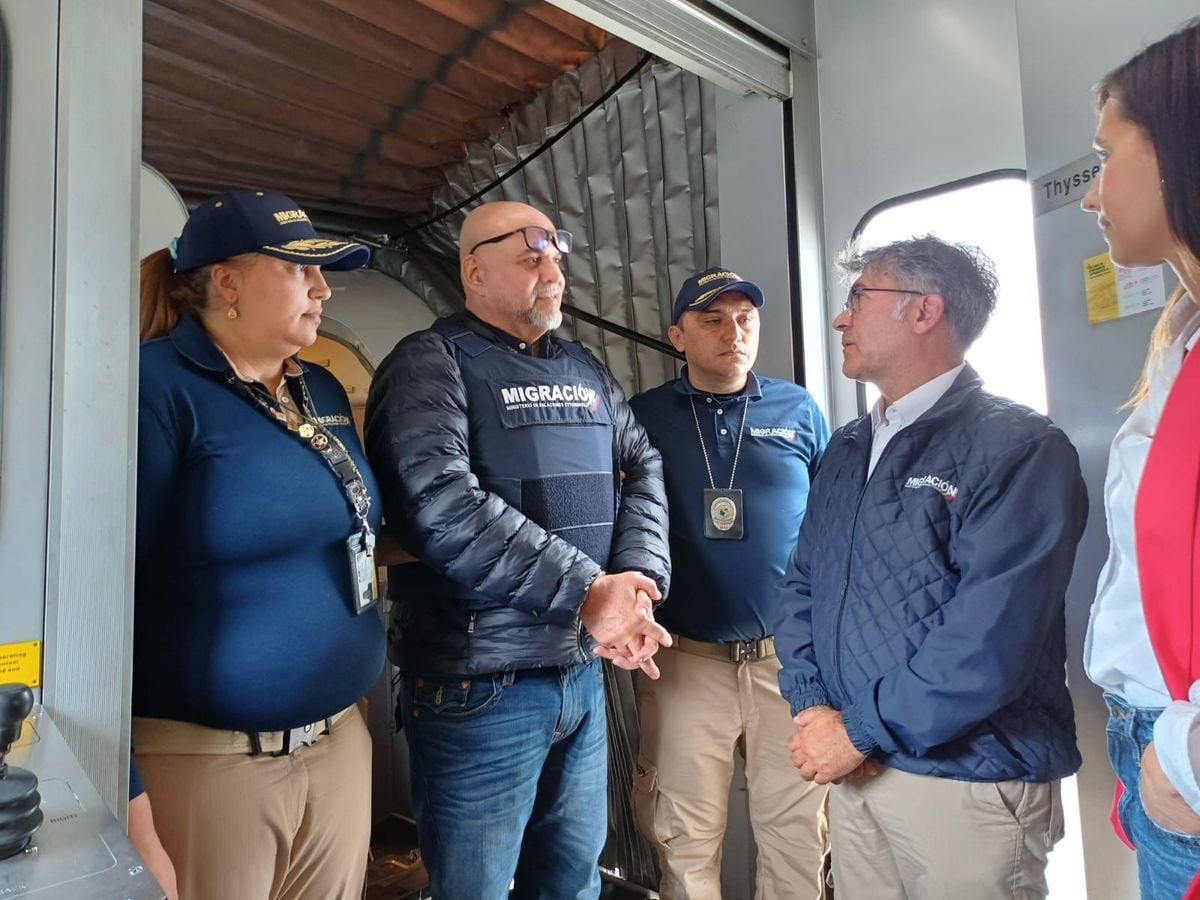
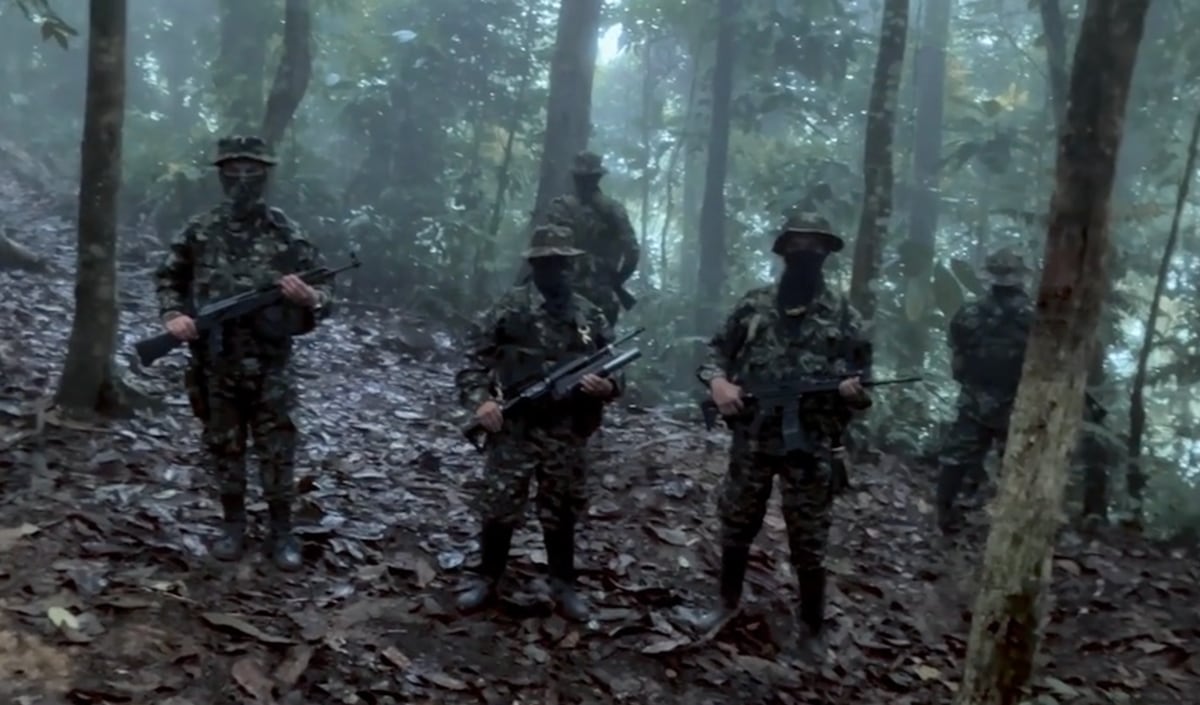
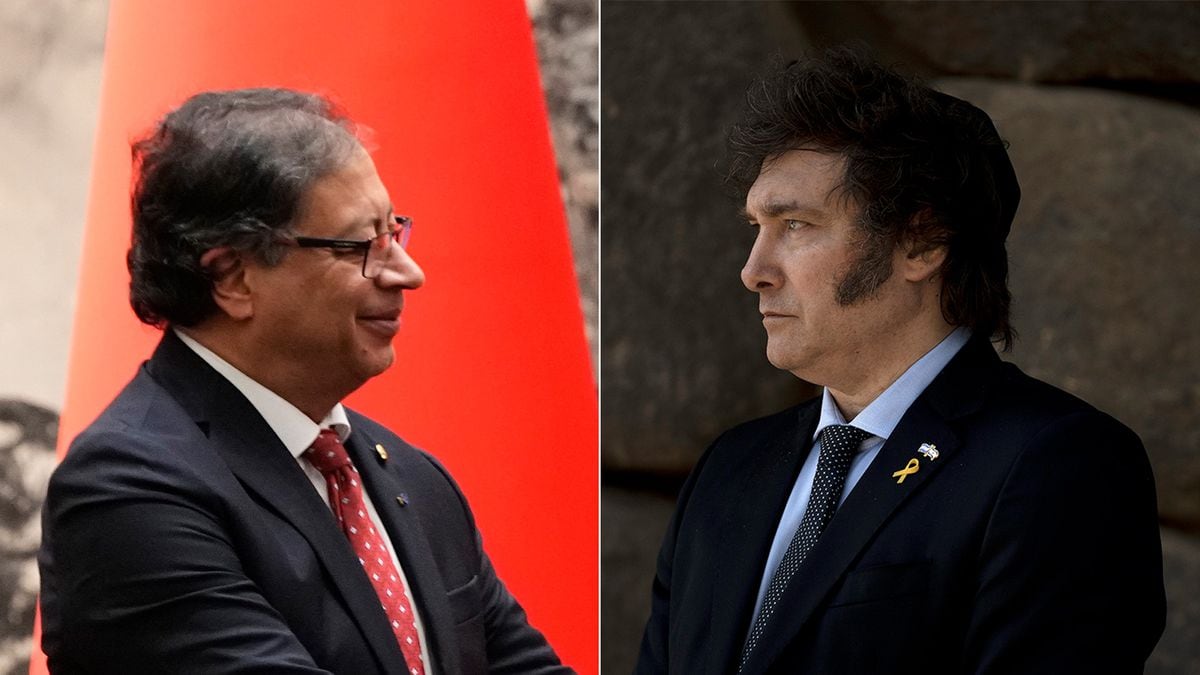
/cloudfront-eu-central-1.images.arcpublishing.com/prisa/62WTZ2YGTKOGTJ6OXJW67JCCME.jpg)
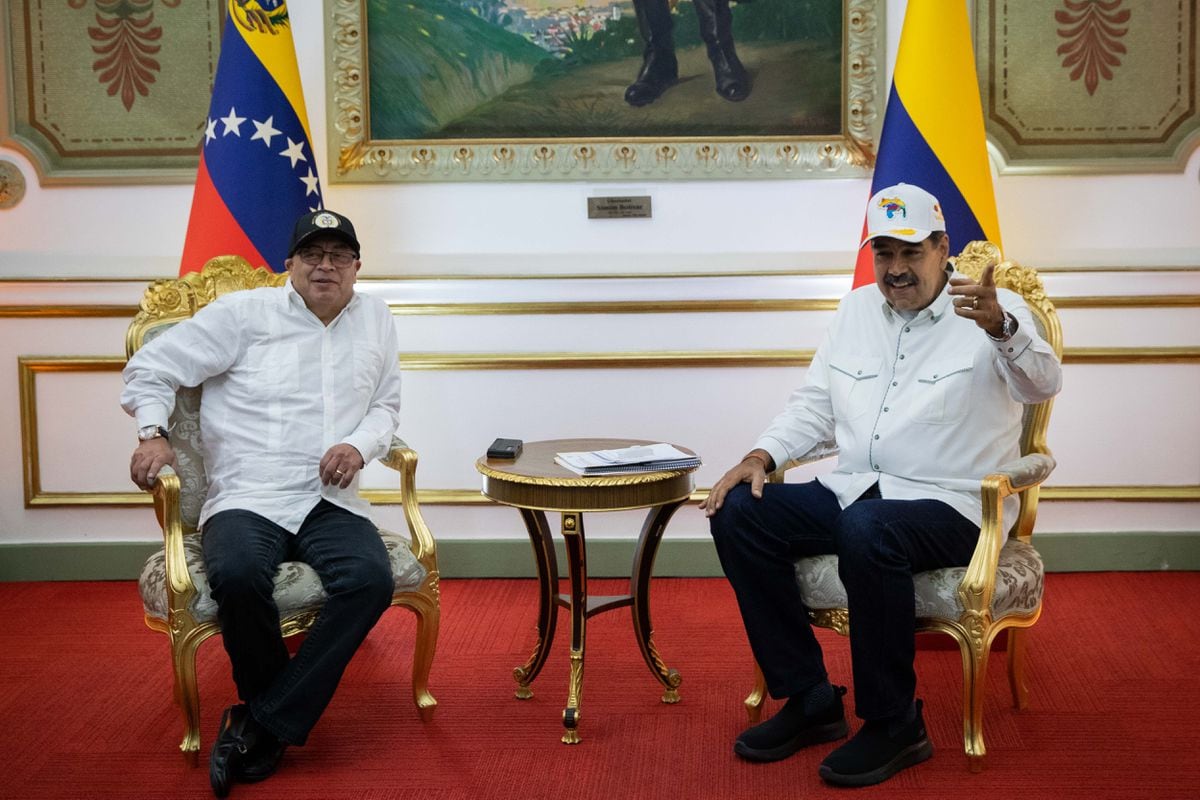
/cloudfront-eu-central-1.images.arcpublishing.com/prisa/USUWDBG7JJHATL4LN5CDIOB4XE.jpg)
